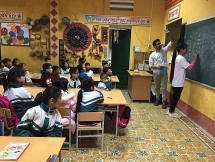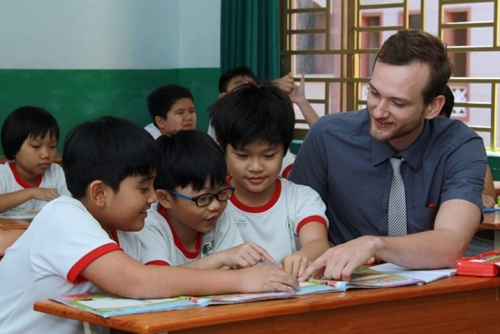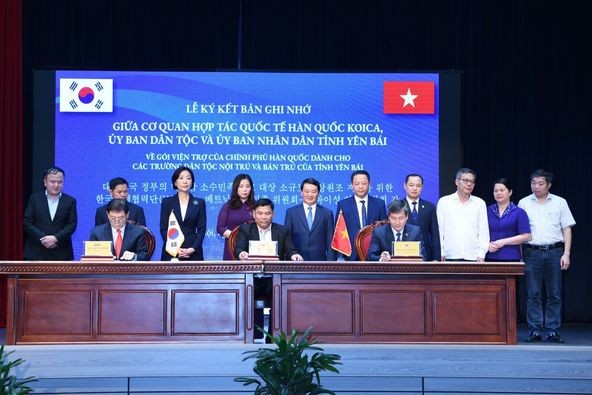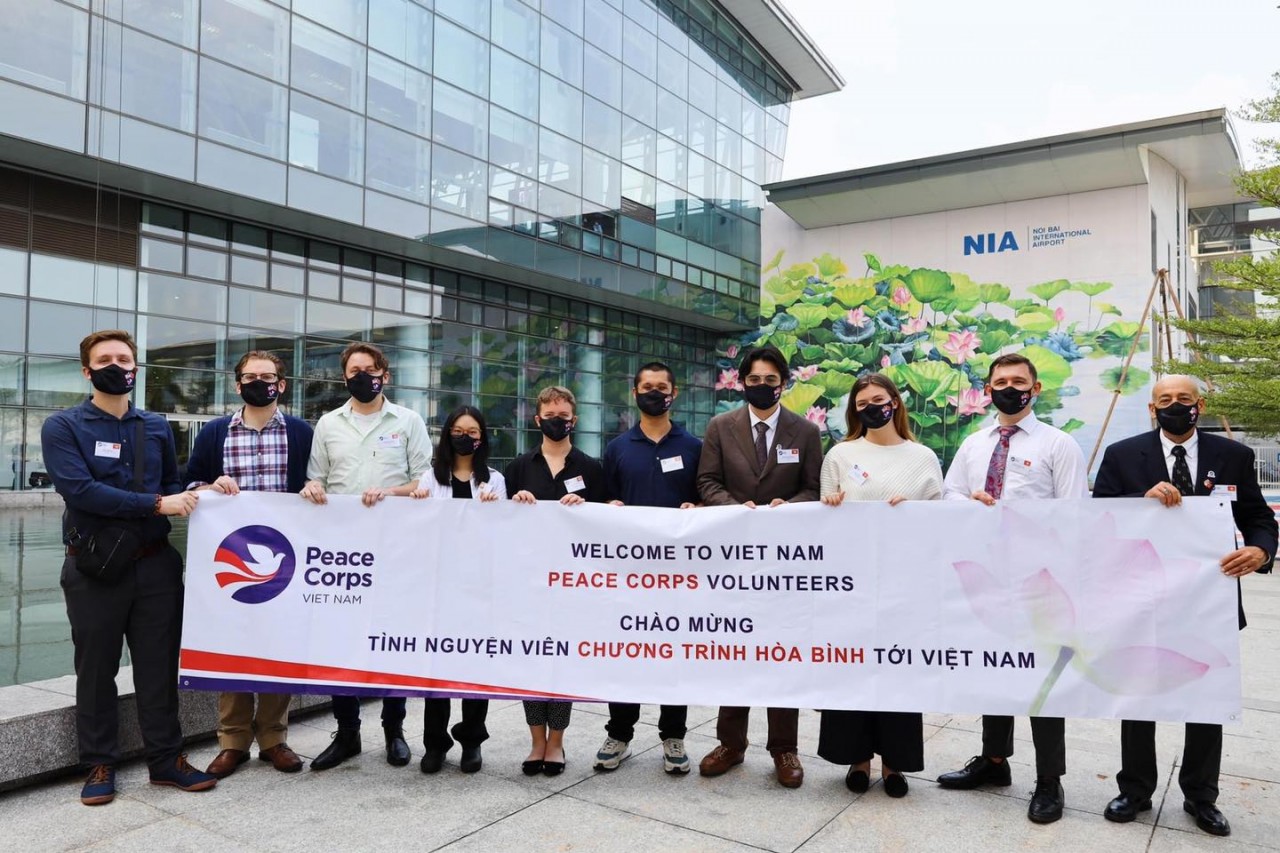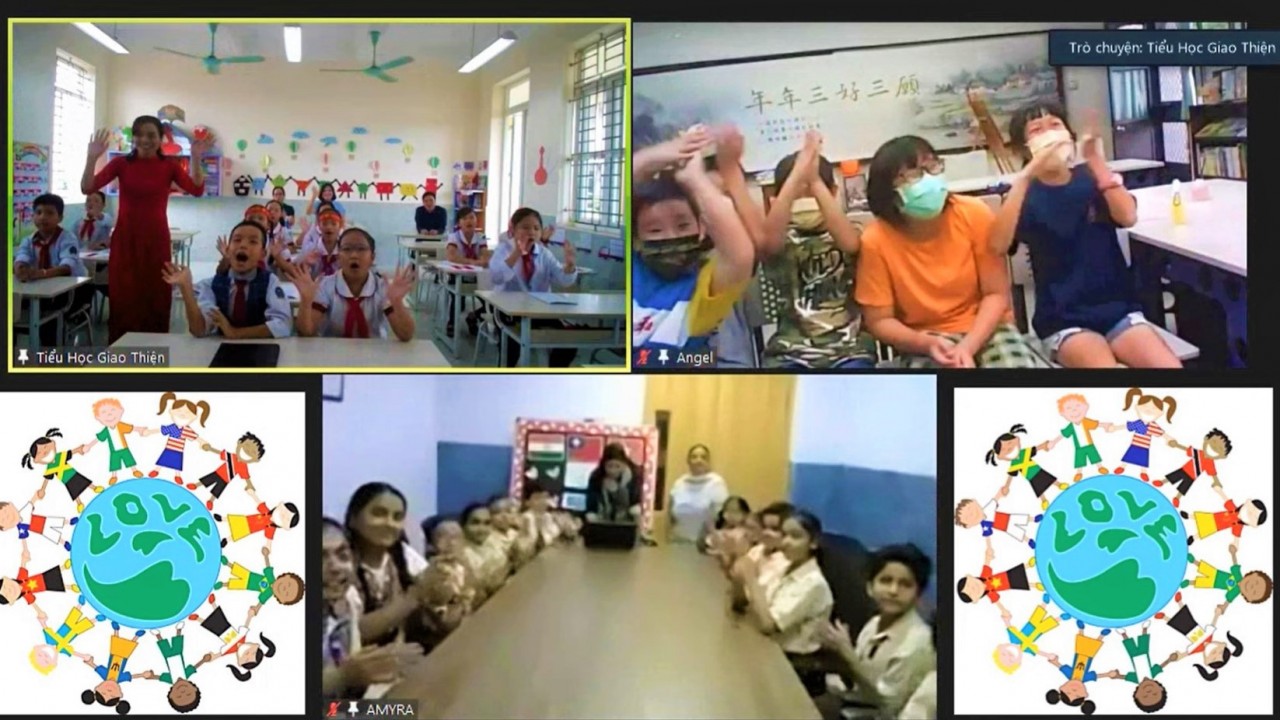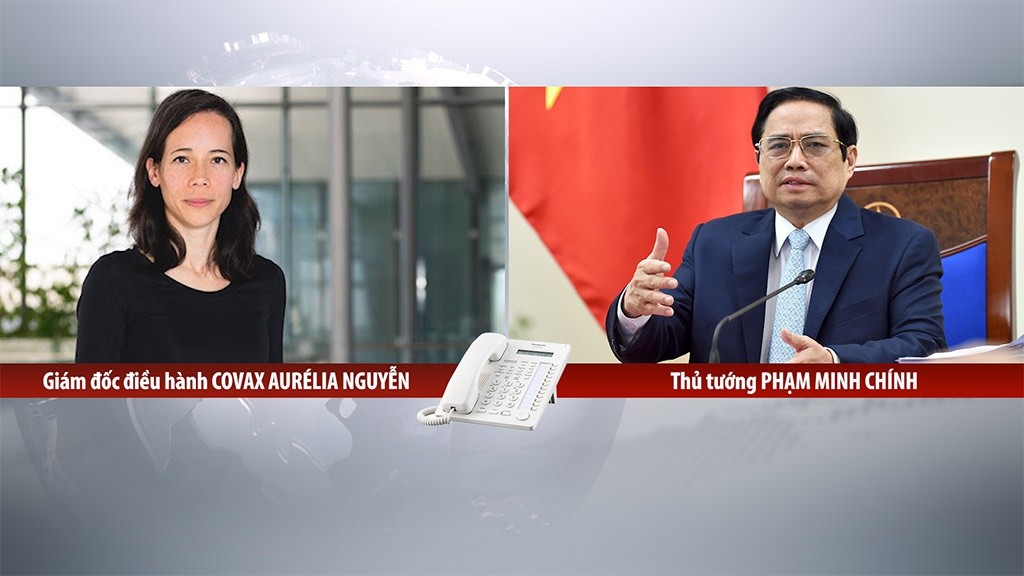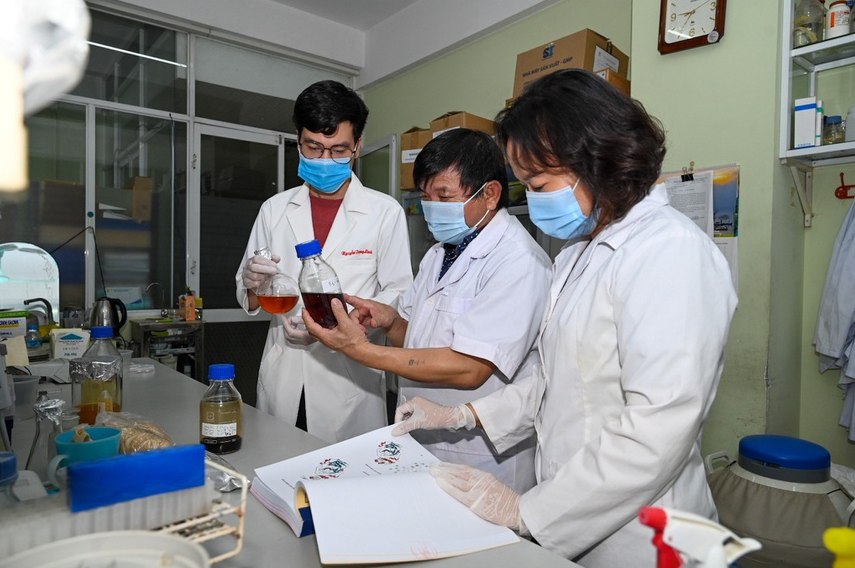English teacher employs borderless classroom for ethnic students
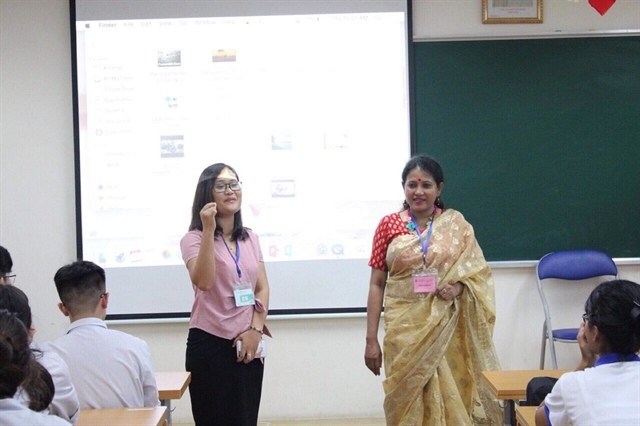 |
| Teacher Ha Anh Phuong invites an Indian teacher to her English Language class, offering students the chance to speak English naturally. (Photo source: Ha Anh Phuong) |
29-year-old Ha Anh Phuong from Huong Can High School encourages her students to sign up for international development projects or spend time writing letters in English to their friends, reading English newspapers and watching English programmes on TV.
From a remote mountainous area in the north of Vietnam, her students, most of whom are from ethnic minority groups, are confident communicating in English.
They get the chance to talk with native English speakers which helps to improve their language skills and boosts their confidence.
Phuong said that she and her students had “travelled” to over 30 countries without a visa.
Thanks to the borderless classroom model, her students’ English proficiency has improved significantly. They get connected with their peers around the world, accessing modern education models and learning more about different cultures.
| Phuong’s teaching innovations have earned her a place in the top 50 outstanding finalists for the 2020 Global Teacher Prize, selected from over 12,000 nominations and applications from 140 countries around the world. The Global Teacher Prize has a prize of US$1 million, and is presented annually to an exceptional teacher who has made an outstanding contribution to the profession. |
The Varkey Foundation established the prize in 2014 to recognise and celebrate the impact that teachers have around the world- not only on their students but also on the communities around them.
Last year, Vietnamese teacher Tran Thi Thuy from Duc Hop High School in the northern province of Hung Yen was also on the shortlist for inspiring rural students to learn English.
Making a difference
Born in Yen Lap, a poor mountainous district in Phu Tho, Phuong understands the disadvantages rural students usually face when studying foreign languages.
They have few chances to speak English with foreigners, and the students are shy and lack intercultural knowledge.
Phuong said that she was inspired to become a teacher after seeing a film in which the teacher worked in a remote mountainous area like her hometown.
In the film, the teacher visited local families who lived along dangerous mountain paths to persuade parents to send their children to school rather than let them stay at home.
In her youth, Phuong dreamed of becoming an English teacher after she fell in love with the language in secondary school.
Graduating from high school, Phuong attended Ha Noi University – a famous institution specialising in foreign language studies.
After getting her master’s degree in English, Phuong realised her dream of becoming an English teacher, and even refused a job offer to work in a management position with an attractive salary at a Pakistani company.
She chose to go back to her hometown, teaching at a local high school.
“Every student needs and deserves a good education,” Phuong said, adding that she wanted to bring better education to children in her hometown.
| To tackle long-lasting problems that rural students usually meet learning English, Phuong found technology assistants. She employed the borderless classroom model to connect her students to international peers via Skype. Some of her innovations have significantly improved students' results, which can be clearly seen in their national exams. Last school year, all her students who were previously low-achieving in the English language passed the final exam. |
Some might be sceptical about the results as English is not a strength of students in Vietnam’s rural areas. In the past, students in remote disadvantaged areas even took alternative subjects like history or geography instead of English in their high school graduation exams.
Principal of Huong Can High School Phan Trong Duc said that Phuong was a young enthusiast.
“She is full of ideas,” he said.
Ha Thu Lan, an 11th grader, said that Phuong’s English lessons were engaging because students can talk to and learn from their peers in the US, India or South Africa.
“We learn much from them and we can practise listening, reading and writing in English effectively,” she said.
Well known as the “4.0 innovative teacher” in Vietnam, Phuong has now taught students online from four continents - Africa, Europe, Asia, and America.
She is an active member of an educational Microsoft community that gathers global teachers to design lessons and engage in weekly professional development.
Last year, during the international project “Say No to plastic straws”, Phuong instructed her students to respond and was named among the top 150 most outstanding project in a teaching contest organised by the Ministry of Education and Training and Microsoft.
During the project presentation, Phuong's students met their peers from four continents to present Vietnamese bamboo straws and talk about the production process.
“Thanks to Skype, I can connect my class with other teachers around the world,” Phuong said.
“English is a living language, so I think it is very important to create a creative environment for students to learn,” Phuong said.
“I see the confidence and excitement of students in my borderless classroom, and I believe they will become global citizens,” Phuong said.
Thanks to the assistance of IT, borderless education has become much easier.
“As a young teacher, I need to keep enriching my knowledge and teaching experiences,” she said, adding that she wanted to design lessons with IT applications, and instruct her students in international projects that go in line with the United Nations’ sustainable development goals.
“I also plan to launch a free English teaching channel on Youtube,” she said.
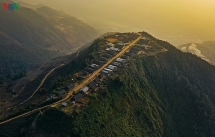 | Mesmerizing scenes of terraced field village northwest Vietnam Together with familiar tourist sites namely Sapa and Mu Cang Chai, Cu Vai village beyond enthralling terraced fields in the northwestern province of Phu Yen ... |
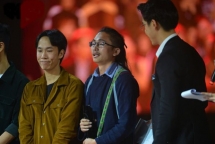 | Two youngsters make video to spread COVID-19 information to Mong ethnic minority A video clip by two young people is helping members of the Mong ethnic minority learn about COVID-19, providing accurate and useful information to prevent ... |
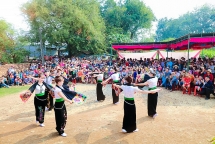 | Check out the strange spring celebration customs of ethnic groups in northern Vietnam Festivals are an indispensable parts of spring celebrations across villages in Vietnam during Tet (Lunar New Year) Festival. In some ethnic minority groups in the ... |
In topics
Recommended
 Handbook
Handbook
Vietnam Moves Up 8 Places In World Happiness Index
 Handbook
Handbook
Travelling Vietnam Through French Artist's Children Book
 Multimedia
Multimedia
Vietnamese Turmeric Fish among Best Asian Dishes: TasteAtlas
 Handbook
Handbook
From Lost to Found: German Tourist Thanks Vietnamese Police for Returning His Bag
Popular article
 Handbook
Handbook
Prediction and Resolution for the Disasters of Humanity
 Handbook
Handbook
16 French Films To Be Shown For Free During Tet Holiday In Vietnam
 Handbook
Handbook
Unique Cultural and Religious Activities to Welcome Year of the Snake
 Handbook
Handbook



